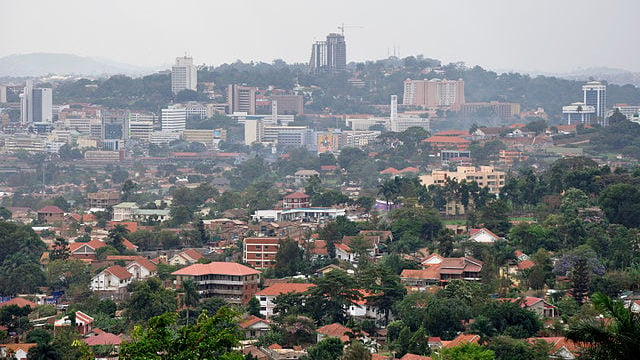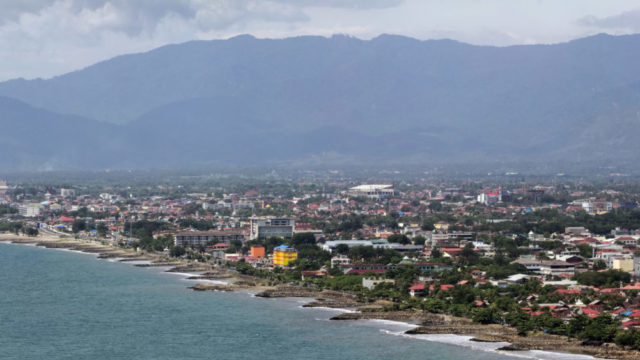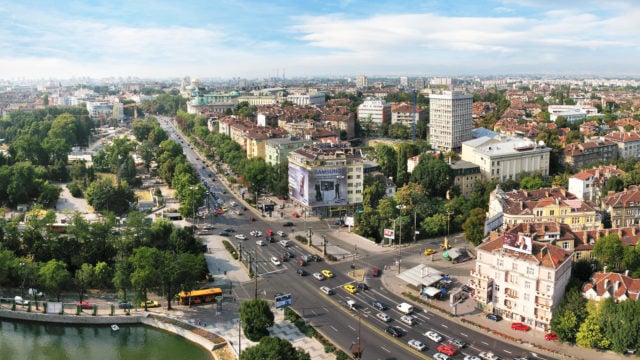New research shows that the global economy is making a major turn toward rapid economic growth, and will continue trending in that direction over the coming years.
That's according to the Center for International Development (CID) at Harvard University, which recently released their projections for the most rapid economic growth in the next decade. After analyzing global trade data from 2015 — the most recently available data — the CID concluded that the global economy trending upward.
So which countries are positioned to benefit from this trend?
The CID study suggests that the following countries will have the most rapid economic growth for the coming decade:
India Finance minister Arun Jaitley recently stated that India has potential for reasonably high growth in the next 10-20 years.
Finance minister Arun Jaitley recently stated that India has potential for reasonably high growth in the next 10-20 years.
Uganda According to USAID, "Uganda's economy registered growth of 4.8 percent in FY2015/16 with the major driver being the services sector that grew by 6.5 percent."
According to USAID, "Uganda's economy registered growth of 4.8 percent in FY2015/16 with the major driver being the services sector that grew by 6.5 percent."
Turkey  According to The Financial Times, "GDP growth in Turkey hit 5 per cent in the first three months of the year compared to the same period last year, and up from 3.5 per cent at the end of 2016, when the economy bounced back after its worst quarter since the financial crisis."
According to The Financial Times, "GDP growth in Turkey hit 5 per cent in the first three months of the year compared to the same period last year, and up from 3.5 per cent at the end of 2016, when the economy bounced back after its worst quarter since the financial crisis."
Indonesia  According to the World Bank, "Indonesia's real GDP growth is projected to increase from 5.0 percent in 2016 to 5.2 percent this year, and further strengthen to 5.3 percent in 2018."
According to the World Bank, "Indonesia's real GDP growth is projected to increase from 5.0 percent in 2016 to 5.2 percent this year, and further strengthen to 5.3 percent in 2018."
Bulgaria  "Bulgaria has undergone a significant transformation over the past three decades. It has transformed from a highly centralized, planned economy to an open, market-based, upper-middle-income economy...," according to the World Bank.
"Bulgaria has undergone a significant transformation over the past three decades. It has transformed from a highly centralized, planned economy to an open, market-based, upper-middle-income economy...," according to the World Bank.
“What they share is a focus on expanding the capabilities of their workforce that leaves them well positioned to diversify into new products, and products of increasingly greater complexity,” Timothy Cheston, a research fellow at CID, said in a statement.
Notably, India's projected rise to global trade supremacy comes as Chinese exports and the country's economic complexity went backward. Giving way to India could potentially make the world's largest democracy a competitor on the supply side of the consumer products space.
Both India and Uganda will experience the most rapid economic growth at 7.7 percent per year; however, the reasons differ.
For Uganda's case, a major factor to this projection is rapid population growth. For India, the country's economy is at a state to diversify into new spaces and produce even more product and services as the government of Narendra Modi works to increase interest in Foreign Direct Investment.
CID also released its economic complexity rankings, recently, in addition to the immediate projections.
Japan is #1 for the most economic complexity, followed by Switzerland at #2, Germany is #3, South Korea is #4, Austria is #5, Sweden is #6, the Czech Republic is #7, Hungary is #8, Singapore is #9, and the United States rounds off the top 10.
Nigeria is dead last, following Papua New Guinea, Guinea, Sudan, and the Congo.
Are these projections eye-opening? Share your thoughts in the comments.
MORE BUSINESS STORIES ON CAPITALISM.COM:
• Slack Communities for Startup CEOs
• What Houzz Capital Raise, Valuation Could Mean for Home Product Businesses
• New Research Says Sex Appeal Doesn’t Sell As Previously Thought











